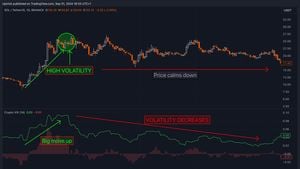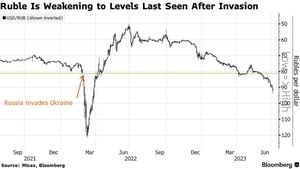Germany's recent Bundestag election has sparked renewed hope for economic recovery, positively impacting the stock market, particularly the MDax, which rose by 1.5% following the election results. The Dax, representing larger companies, also saw gains of 0.6%.
With the CDU/CSU gaining the strongest foothold, the potential for a coalition with the SPD suggests stability and economic progress. Analysts, including Ulrich Kater, Chief Economist at Dekabank, highlighted, "Das Wahlergebnis wird die ersten zarten Erholungstendenzen in der deutschen Konjunktur unterstützen," reflecting optimism about improving market conditions.
The MDax, which features mid-sized companies, has historically lagged behind the Dax but has begun to catch up this year, propelled by encouraging economic forecasts. Since the beginning of the year, the MDax has increased by nearly 9%, indicating rising investor confidence.
Helping this confidence is the expected formation of Germany's new government, potentially ready to tackle pressing economic challenges by Easter. This anticipated action presents opportunities for individual stocks. For example, Rheinmetall—the defense contractor—saw significant growth, securing gains of 6.4%. Analysts, including those from UBS, have rated Rheinmetall shares as 'Buy', citing increases in defense spending expected from the new government.
Similarly, Hypoport, another mid-sized firm, surged by 5.2%, as investment experts predict renewed vigor for their B2B credit marketplace, Europace. The market’s buoyancy is attributed to expectations surrounding efficient governance and proactive economic policy-driven decisions.
Despite this positive climate, some analysts like Konstantin Oldenburger from CMC Markets caution against overexcitement. He warned, "Allerdings könnten die Koalitionsverhandlungen trotz einer Zwei-Parteien-Lösung langwierig und unergiebig werden," indicating potential hurdles could disrupt the positive momentum. Market players are advised to remain vigilant as coalition negotiations begin, with the possibility of corrections if political tensions arise.
Overall, the election results have demonstrated their capacity to influence the stock market, as seasoned investors are already aligning their strategies based on expected outcomes. The election serves as both a catalyst for market optimism and serves as the foundation for future economic policies.
While the overall sentiment remains positive, sentiments remain mixed. Analysts note the Ifo Business Climate Index showed stagnant results, which fell short of expectations for improvement. The index remained at 85.2, lower than the anticipated rise to 85.8. This highlights the cautious attitude prevalent among businesses as they await policy direction from the new government.
Looking forward, markets will be closely monitoring coalition negotiations as well as legislative initiatives with potential ramifications for major economic areas, such as tax policy and debt management. With signs of optimism following the election and the prospect of economic stabilization, many are eager to see how the new government will navigate these complex challenges.
Overall, the situation remains fluid, and as investors reflect on the market's recent performance, they understand the interplay between politics and financial markets. Sticking points throughout upcoming discussions could alter trajectories quickly, reminding stakeholders of the cautious approach required during volatile political climates.



